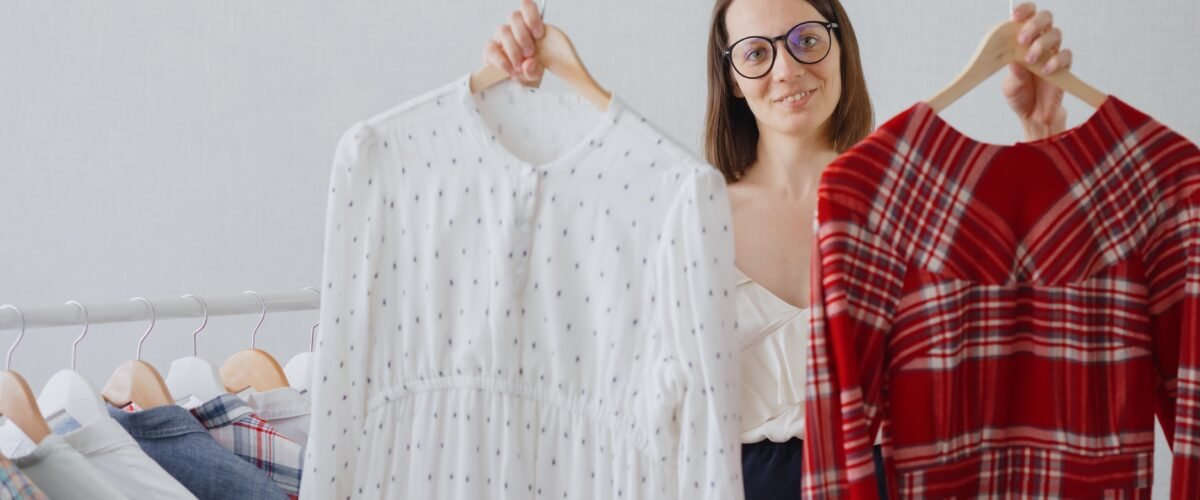What Are Sustainable Clothes? Discover the Magic of Sustainable Style
Sustainable clothes are garments crafted with a focus on environmental and social responsibility. They incorporate eco-friendly materials like organic cotton, hemp, bamboo, and recycled fibers, which minimize environmental impact. Sustainable clothing also emphasizes ethical manufacturing practices, ensuring fair wages and safe working conditions. This approach reduces the carbon footprint, conserves resources, and promotes a more ethical fashion industry. By choosing sustainable clothing, consumers can enjoy stylish, high-quality apparel while supporting a greener and more equitable future. Discover the magic of sustainable style and make a positive impact with your wardrobe choices.
Introduction to Sustainable Clothing
Sustainable clothing is a concept that has gained significant traction in recent years, driven by growing consumer awareness and the environmental impact of the fashion industry. At its core, sustainable clothing refers to garments that are designed, manufactured, distributed, and used in ways that are environmentally friendly and socially responsible. This approach to fashion encompasses various practices and principles aimed at reducing the industry’s carbon footprint, conserving resources, and ensuring fair labor practices. To understand the full scope of sustainable clothing, it’s essential to delve into the key components that define this movement.
Eco-Friendly Materials in Sustainable Clothing
One of the primary aspects of sustainable clothing is the use of eco-friendly materials. These materials include organic cotton, hemp, bamboo, and recycled fibers. Organic cotton, for example, is grown without synthetic pesticides or fertilizers, reducing the environmental harm associated with conventional cotton farming. Hemp and bamboo are fast-growing plants that require minimal water and no chemical inputs, making them highly sustainable alternatives. Recycled fibers, such as those made from plastic bottles or discarded textiles, help reduce waste and the demand for virgin materials. These sustainable fabrics are often certified by various organizations, such as the Global Organic Textile Standard (GOTS) and the OEKO-TEX Standard, which ensure that the materials meet specific environmental and social criteria.
Ethical Manufacturing Practices
Another critical component of sustainable clothing is the emphasis on ethical manufacturing practices. This includes ensuring fair wages, safe working conditions, and respecting workers’ rights throughout the supply chain. Brands committed to sustainability often partner with factories that adhere to rigorous labor standards and transparency. By doing so, they help combat issues such as child labor, exploitation, and unsafe working environments that are unfortunately prevalent in the global fashion industry. Ethical manufacturing not only benefits workers but also enhances the overall quality and durability of the clothing, as workers in fair conditions are more likely to produce higher-quality products.
Reducing Environmental Impact in Production
Sustainable clothing also involves adopting practices that minimize environmental impact during the production process. This includes reducing water usage, energy consumption, and chemical pollution. For instance, waterless dyeing techniques and low-impact dyes are being increasingly utilized to lessen the environmental burden of textile dyeing, which is traditionally one of the most polluting aspects of garment production. Additionally, some brands are implementing closed-loop systems where water and chemicals are recycled and reused, significantly cutting down on waste and pollution.
Embracing Circular Fashion
The concept of circular fashion is another important facet of sustainability in clothing. Circular fashion aims to create a closed-loop system where garments are designed for longevity, reuse, and recyclability. This involves designing clothes that are durable and timeless, promoting second-hand shopping, and encouraging recycling and upcycling of old garments. Brands that embrace circular fashion often offer take-back programs, where consumers can return their worn-out clothes for recycling or repurposing. This not only extends the life cycle of the garments but also reduces the need for new raw materials and decreases textile waste in landfills.
The Role of Consumers in Sustainable Fashion
Consumer behavior plays a crucial role in the success of sustainable clothing initiatives. Educating consumers about the benefits of sustainable fashion and encouraging mindful purchasing decisions can drive significant change. Choosing quality over quantity, investing in timeless pieces, and supporting brands that prioritize sustainability are ways consumers can contribute to a more sustainable fashion industry. Additionally, proper care and maintenance of clothing, such as following washing instructions and repairing instead of discarding damaged items, can prolong the life of garments and reduce their environmental impact.
Sustainable clothing represents a comprehensive approach to fashion that prioritizes environmental preservation and social responsibility. By focusing on eco-friendly materials, ethical manufacturing, reducing environmental impact, embracing circular fashion, and fostering informed consumer behavior, the fashion industry can make significant strides towards sustainability. As awareness and demand for sustainable clothing continue to grow, it is likely that more brands will adopt these practices, leading to a more sustainable and ethical fashion landscape. This shift not only benefits the planet but also creates a more equitable and responsible industry for all stakeholders involved.










Hey Students!
Summer semester’s almost here! Get a head start and grab all your eTextbooks (over 15,000 titles in convenient PDF format!) at Cheapest Book Store. Save BIG on your studies with 20% off using code SUMMERVIBE24.
Still missing a book? No problem! Submit a request through our system and we’ll add it to our collection within 30 minutes. That’s right, you won’t be left scrambling for materials! ⏱️
Don’t wait – visit https://m.cheapestbookstore.com today and ace your summer semester!
Happy Learning!
Cheapest Book Store
Pretty component to content. I just stumbled upon your blog and in accession capital to assert that I acquire in fact enjoyed account your weblog posts. Any way I will be subscribing to your augment or even I success you get admission to persistently rapidly.
When I originally commented I clicked the “Notify me when new comments are added” checkbox and now each time a comment is added I get several emails with the same comment. Is there any way you can remove me from that service? Bless you!
Thanks for the recommendations on credit repair on all of this site. The things i would tell people would be to give up this mentality that they can buy at this moment and pay later. Like a society most of us tend to do this for many factors. This includes vacations, furniture, along with items we really want to have. However, it is advisable to separate your current wants from all the needs. If you are working to fix your credit score you have to make some sacrifices. For example you’ll be able to shop online to save money or you can look at second hand merchants instead of high-priced department stores for clothing.